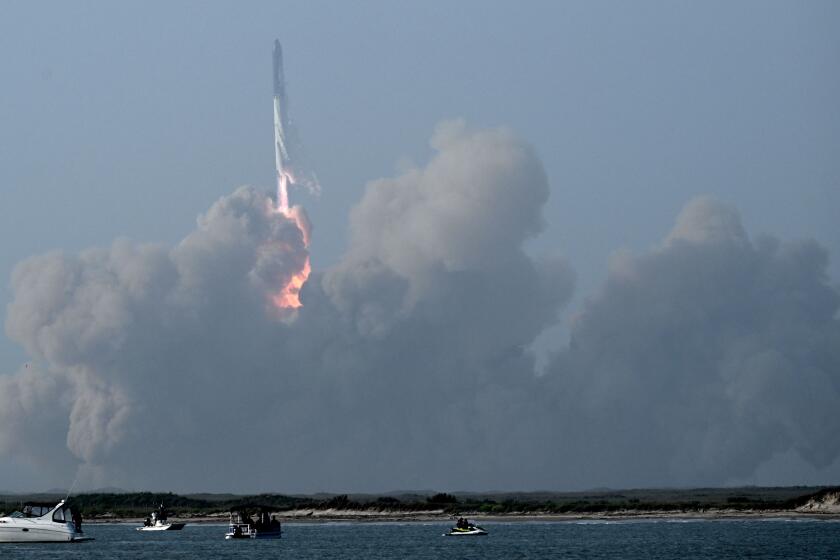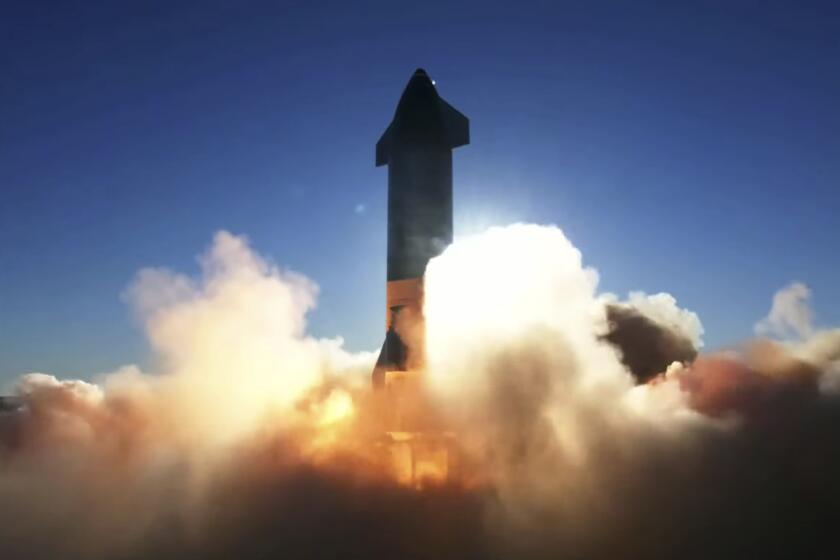Elon Musk’s SpaceX wins Pentagon deal for Starlink in Ukraine

The Pentagon is buying Starlink satellite communications terminals and services from billionaire Elon Musk’s SpaceX for use by the Ukrainian military, the Defense Department said.
The terminals probably will be purchased under the Ukraine Security Assistance Initiative, which provides for the embattled nation’s long-term security needs. In December, the Defense Department disclosed in announcing such a funding package that it would provide satellite communications “terminals and services” to Ukraine, but didn’t confirm that Musk’s company would get the contract.
“We continue to work with a range of global partners to ensure Ukraine has the resilient satellite and communication capabilities they need,” the Pentagon said in a statement Thursday. “Satellite communications constitute a vital layer in Ukraine’s overall communications network and the department contracts with Starlink for services of this type.”
“However, for operational security reasons and due to the critical nature of these systems, we do not have additional information regarding specific capabilities, contracts or partners to provide at this time,” it said.
U.S. military officials have praised the role that portable Starlink terminals have played in Ukraine since Russia’s invasion in keeping the civilian population connected and in providing crucial communications for the country’s military.
Texas environmental groups have sued the FAA, alleging that it isn’t doing enough to protect the natural habitat around SpaceX’s Starship launch site.
The statement was the latest twist in the Pentagon’s often contentious relationship with Musk over the terminals.
At one point last October, Musk reportedly told the Pentagon that SpaceX wouldn’t continue to foot the bill for the portable terminals, only to reverse that position. Musk said SpaceX was spending $20 million a month to provide broadband internet to more than 150,000 Ukrainian ground stations from its Starlink system of more than 2,200 low-orbiting satellites.
The same month, Musk offered a peace proposal that would require Ukraine to remain neutral, cede Crimea to Russia and redo elections in areas of Ukraine taken over by Russia.
“This is highly likely to be the outcome in the end — just a question of how many die before then,” Musk wrote on Twitter, which he now owns. “Also worth noting that a possible, albeit unlikely, outcome from this conflict is nuclear war.”
Ukrainian President Volodymyr Zelensky responded by inviting Musk to Ukraine to see “what Russia has done here.” Zelensky praised Starlink, saying that “life was maintained” thanks to the terminals.
The April 20 launch of SpaceX’s massive Starship rocket destroyed the structure below the launchpad, sending chunks of sand, concrete and steel thousands of feet into the sky.
More recently, Musk criticized the use of Starlink terminals by Ukraine for combat, saying in a February tweet: “Starlink is the communication backbone of Ukraine, especially at the front lines, where almost all other Internet connectivity has been destroyed. But we will not enable escalation of conflict that may lead to WW3.”
SpaceX commercial terminals, “like other commercial products, are meant for private use, not military, but we have not exercised our right to turn them off. We’re trying hard to do the right thing, where the ‘right thing,’ is an extremely difficult moral question,” he tweeted.
Gwynne Shotwell, SpaceX’s president and chief operating officer, said at a February industry conference in Washington that Starlink was being used in unintended ways, which the company has since tried to stop.
“It was never intended to be weaponized,” she said. Ukrainians “leveraged it in ways that were unintentional” and went beyond communications for the military. She cited news reports that “they were using our technology on drones.”
Musk’s SpaceX has established strong ties at the Pentagon, breaking into what once was a monopoly of the two largest defense contractors and winning contracts to launch the United States’ most sensitive national security satellites.
But relations with the White House have been rocky for the volatile entrepreneur who has urged Americans to vote for Republicans and once ridiculed President Biden as a damp sock puppet in human form. Last week, Ron DeSantis, Florida’s Republican governor, launched his campaign for president alongside Musk on Twitter.
In November, Biden said Musk’s relationships with other countries are “worth looking into,” although he declined to say whether Musk was doing anything inappropriate. The Biden administration discussed last year whether the U.S. should subject some of Musk’s ventures to national security reviews, according to people familiar with the matter.
More to Read
Inside the business of entertainment
The Wide Shot brings you news, analysis and insights on everything from streaming wars to production — and what it all means for the future.
You may occasionally receive promotional content from the Los Angeles Times.












